Documenting the Work of Equality: Seven Serious Feminist Books
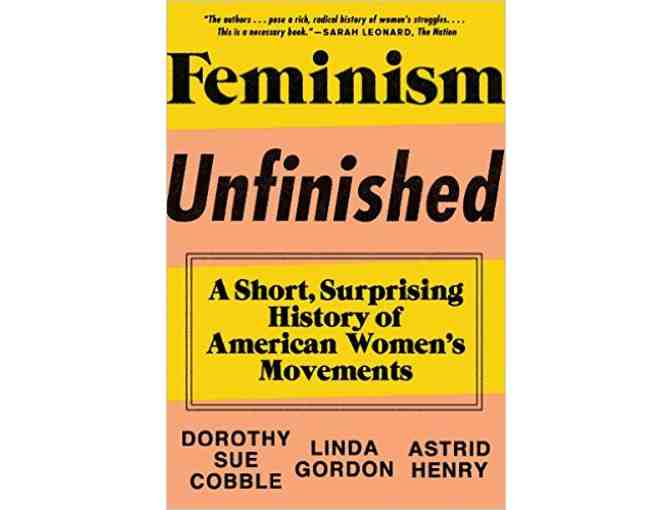
Item Number: 245
Time Left: CLOSED
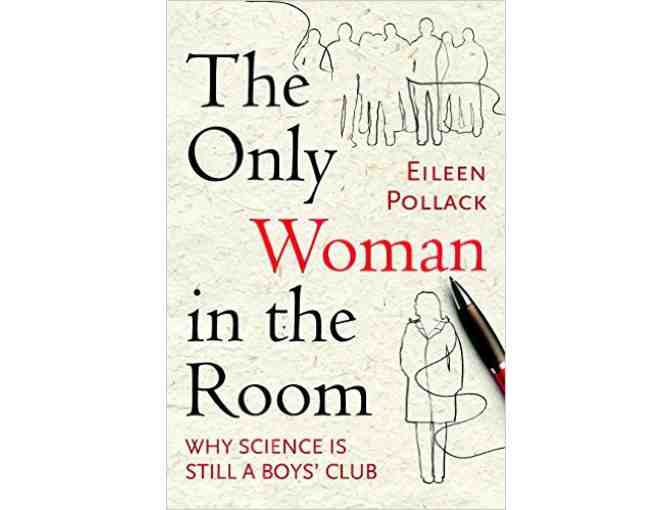
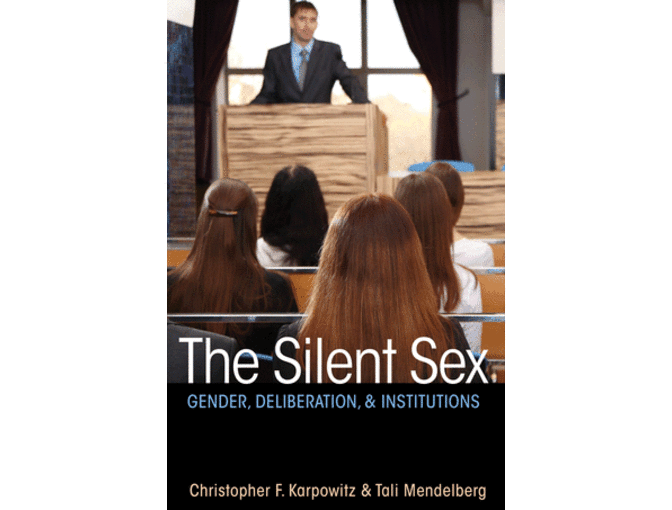
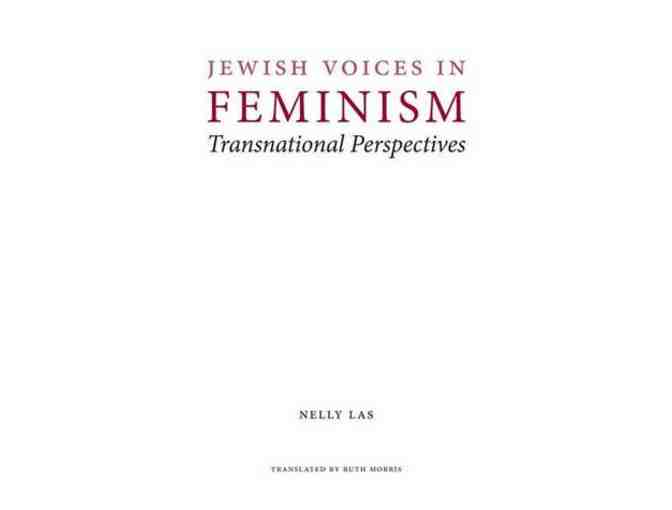
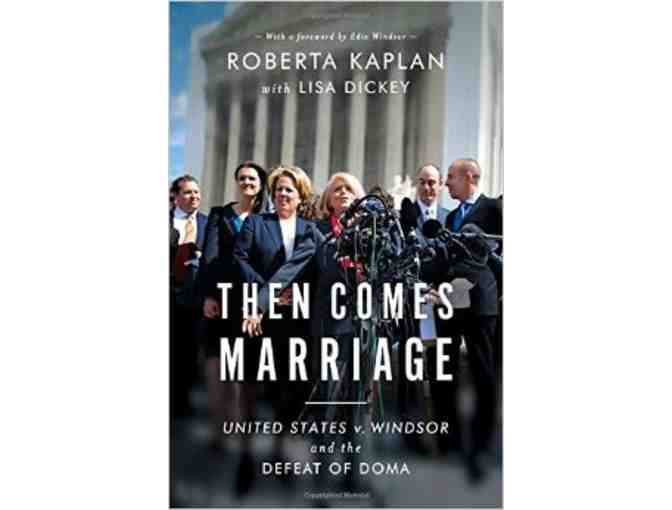
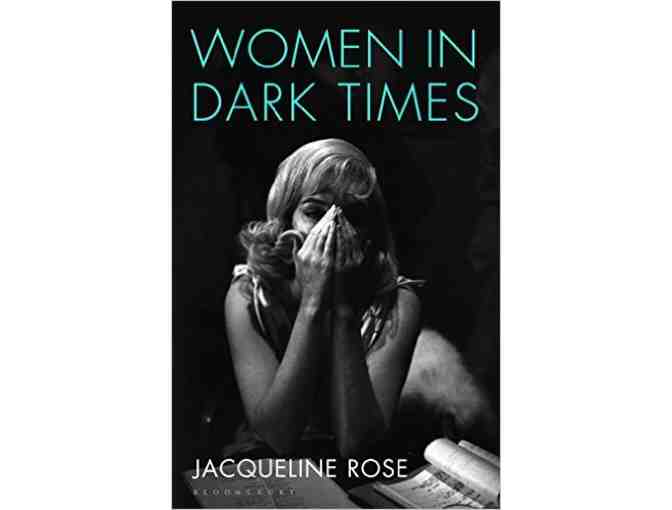
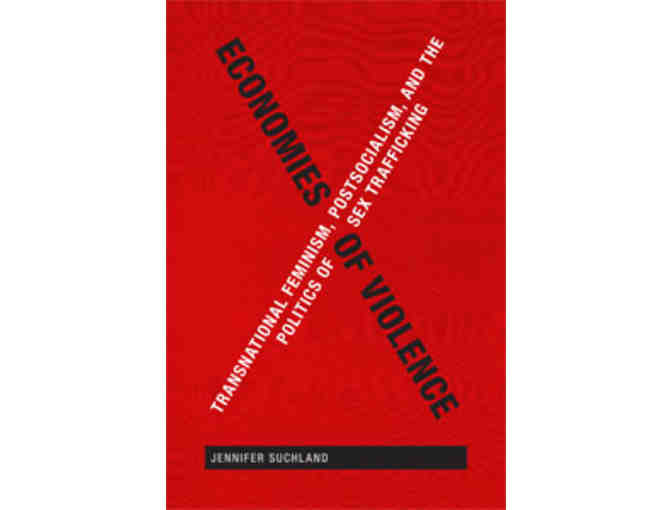
Description
Feminism Unfinished: A Short, Surprising History of American Women's Movements, by Dorothy Sue Cobble, Linda Gordon, and Astrid Henry.
Reframing feminism for the twenty-first century, this bold and essential history stands up against "bland corporate manifestos" (Sarah Leonard).
Eschewing the conventional wisdom that places the origins of the American women’s movement in the nostalgic glow of the late 1960s, Feminism Unfinished traces the beginnings of this seminal American social movement to the 1920s, in the process creating an expanded, historical narrative that dramatically rewrites a century of American women’s history. Also challenging the contemporary “lean-in,” trickle-down feminist philosophy and asserting that women’s histories all too often depoliticize politics, labor issues, and divergent economic circumstances, Dorothy Sue Cobble, Linda Gordon, and Astrid Henry demonstrate that the post-Suffrage women’s movement focused on exploitation of women in the workplace as well as on inherent sexual rights. The authors carefully revise our “wave” vision of feminism, which previously suggested that there were clear breaks and sharp divisions within these media-driven “waves.” Showing how history books have obscured the notable activism by working-class and minority women in the past, Feminism Unfinished provides a much-needed corrective.
The Only Woman in the Room: Why Science is Still a Boys' Club, by Eileen Pollack.
A bracingly honest exploration of why there are still so few women in the hard sciences, mathematics, engineering, and computer science.
In 2005, when Lawrence Summers, then president of Harvard, asked why so few women, even today, achieve tenured positions in the hard sciences, Eileen Pollack set out to find the answer. A successful fiction writer, Pollack had grown up in the 1960s and ’70s dreaming of a career as a theoretical astrophysicist. Denied the chance to take advanced courses in science and math, she nonetheless made her way to Yale. There, despite finding herself far behind the men in her classes, she went on to graduate summa cum laude, with honors, as one of the university’s first two women to earn a bachelor of science degree in physics. And yet, isolated, lacking in confidence, starved for encouragement, she abandoned her ambition to become a physicist.
Years later, spurred by the suggestion that innate differences in scientific and mathematical aptitude might account for the dearth of tenured female faculty at Summer’s institution, Pollack thought back on her own experiences and wondered what, if anything, had changed in the intervening decades.
Based on six years interviewing her former teachers and classmates, as well as dozens of other women who had dropped out before completing their degrees in science or found their careers less rewarding than they had hoped, The Only Woman in the Room is a bracingly honest, no-holds-barred examination of the social, interpersonal, and institutional barriers confronting women—and minorities—in the STEM fields. This frankly personal and informed book reflects on women’s experiences in a way that simple data can’t, documenting not only the more blatant bias of another era but all the subtle disincentives women in the sciences still face.
The Only Woman in the Room shows us the struggles women in the sciences have been hesitant to admit, and provides hope for changing attitudes and behaviors in ways that could bring far more women into fields in which even today they remain seriously underrepresented.
The Silent Sex: Gender, Deliberation & Institutions, by Christopher F. Karpowitz and Tali Mendelberg.
Do women participate in and influence meetings equally with men? Does gender shape how a meeting is run and whose voices are heard? The Silent Sex shows how the gender composition and rules of a deliberative body dramatically affect who speaks, how the group interacts, the kinds of issues the group takes up, whose voices prevail, and what the group ultimately decides. It argues that efforts to improve the representation of women will fall short unless they address institutional rules that impede women’s voices.
Using groundbreaking experimental research supplemented with analysis of school boards, Christopher Karpowitz and Tali Mendelberg demonstrate how the effects of rules depend on women’s numbers, so that small numbers are not fatal with a consensus process, but consensus is not always beneficial when there are large numbers of women. Men and women enter deliberative settings facing different expectations about their influence and authority. Karpowitz and Mendelberg reveal how the wrong institutional rules can exacerbate women’s deficit of authority while the right rules can close it, and, in the process, establish more cooperative norms of group behavior and more generous policies for the disadvantaged. Rules and numbers have far-reaching implications for the representation of women and their interests.
Bringing clarity and insight to one of today’s most contentious debates, The Silent Sex provides important new findings on ways to bring women’s voices into the conversation on matters of common concern.
Christopher F. Karpowitz is associate professor of political science and associate director of the Center for the Study of Elections and Democracy at Brigham Young University. Tali Mendelberg is professor of politics at Princeton University. She is the author of The Race Card: Campaign Strategy, Implicit Messages, and the Norm of Equality (Princeton).
Jewish Voices in Feminism: Transnational Perspectives, by Nelly Las, translated by Ruth Morris.
Feminist theories maintain that gender issues are a ubiquitous component of our lives, intersecting with every aspect of the society in which we live and interact. Because the feminist debate has included questions important to Jewish discourse, including religion, antisemitism, Zionism, and the Israeli-Palestinian conflict, it is not surprising that such matters should also be of concern to Jewish women, many of whom have played an active role in feminist movements.
In Jewish Voices in Feminism, Nelly Las navigates primarily among three cultures (French, Anglo-American, and Israeli) to present a philosophical and historical analysis of the intersection between contemporary Jewish dilemmas and feminism and its impact on Jewish thinking. She also explains the ambivalent attitude of feminist activists regarding current developments in the Jewish world. This book, based on extensive documentation that includes written and oral testimonies, provides a wide variety of gender-centered approaches to ethics, solidarity, identity, and memory.
Then Comes Marriage: United States v. Windsor and the Defeat of DOMA, by Roberta Kaplan with Lisa Dickey.
Roberta Kaplan’s gripping story of her defeat of the Defense of Marriage Act (DOMA) before the Supreme Court.
Renowned litigator Roberta Kaplan knew from the beginning that it was the perfect case to bring down the so-called Defense of Marriage Act (DOMA). Edie Windsor and Thea Spyer had been together as a couple, in sickness and in health, for more than forty yearsâÂ?Â?enduring society’s homophobia as well as Spyer’s near total paralysis from multiple sclerosis. Although the couple was finally able to marry, when Spyer died the federal government refused to recognize their marriage, forcing Windsor to pay a huge estate tax bill.
In this gripping, definitive account of one of our nation’s most significant civil rights victories, Kaplan describes meeting Windsor and their journey together to defeat DOMA. She shares the behind-the-scenes highs and lows, the excitement and the worries, and provides intriguing insights into her historic argument before the Supreme Court. A critical and previously untold part of the narrative is Kaplan’s own personal story, including her struggle for self-acceptance in order to create a loving family of her own.
Then Comes Marriage tells this quintessentially American story with honesty, humor, and heart. It is the momentous yet intimate account of a thrilling victory for equality under the law for all Americans, gay or straight.
8 pages of illustrations.
Women in Dark Times, by Jacqueline Rose.
Jacqueline Rose's new book begins with three remarkable women: revolutionary socialist Rosa Luxemburg; German–Jewish painter Charlotte Salomon, persecuted by family tragedy and Nazism; film icon and consummate performer Marilyn Monroe.
Together these women have a shared story to tell, as they blaze a trail across some of the most dramatic events of the last century – revolution, totalitarianism, the American dream. Enraged by injustice, they are each in touch with what is most painful about being human, bound together by their willingness to bring the unspeakable to light.
Taking the argument into the present are today's women, courageous individuals involved in some of the cruellest realities of our times. Grappling with the reality of honour killing – notably through the stories of Shafilea Ahmed, Fadime Sahindal and Heshu Yones – Rose argues that the work of feminism is far from done. In the final three chapters, she celebrates the work of three brilliant contemporary artists – Esther Shalev-Gerz, Yael Bartana and Thérèse Oulton – whose work grows out of an unflinching engagement with all that is darkest in the modern world.
Women in Dark Times shows us how these visionary women offer a new template for feminism. Taking their stand against the iniquities of our times, they tread a path between public and private pain, confronting us with what we need most urgently, but also often, cannot bear to see.
Economies of Violence: Transnational Feminism, Postsocialism, and the Politics of Sex Trafficking, by Jennifer Suchland.
Recent human rights campaigns against sex trafficking have focused on individual victims, treating trafficking as a criminal aberration in an otherwise just economic order. In
Economies of Violence Jennifer Suchland directly critiques these explanations and approaches, as they obscure the reality that trafficking is symptomatic of complex economic and social dynamics and the economies of violence that sustain them. Examining United Nations proceedings on women's rights issues, government and NGO anti-trafficking policies, and campaigns by feminist activists, Suchland contends that trafficking must be understood not solely as a criminal, gendered, and sexualized phenomenon, but as operating within global systems of precarious labor, neoliberalism, and the transition from socialist to capitalist economies in the former Soviet Union and Eastern Bloc. In shifting the focus away from individual victims, and by underscoring trafficking's economic and social causes, Suchland provides a foundation for building more robust methods for combatting human trafficking.
About the author:
Jennifer Suchland is Associate Professor of Slavic and East European Languages and Cultures and Women’s, Gender and Sexuality Studies at Ohio State University.
Special Instructions
A $7.50 charge will be added for shipping and handling to any USA address. Inquire about shipping outside the USA.